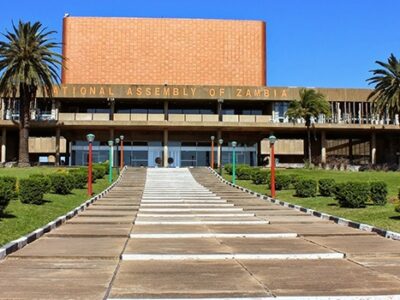Zambia’s media landscape has experienced significant changes in recent years, driven by the enactment of new legislation affecting media freedom and digital rights.
The Access to Information Bill, signed into law in December 2023, aims to empower citizens by providing easy access to information from public and private bodies.
Josiah Kalala, Executive Director of Chapter One Foundation, expressed optimism about the law, stating, “The Access to Information Act is expected to positively impact media freedom and digital rights, particularly as they relate to the right to freedom of expression.”
Read More: Elections and free speech: Navigating the complex dynamics of democratic expression, by James Mwale
Despite this advancement, the Cyber Security and Cyber Crimes Act, 2021, has raised concerns among critics who argued it threatened key rights, including protection from deprivation of property, privacy and freedom of expression.
Senior journalist, George Chomba, criticised the act, noting, “While cyber-crime can be fought, the law is dangerous for journalists, especially those in investigations.
It allowed security operatives access to information by journalists even before news publication.
The law also allowed security agencies to confiscate networks of gadgets used by communicators.”
The Zambia Law Development Commission has been tasked with reviewing, repealing, or replacing the Cyber Security and Cyber Crimes Act, with the report currently under review by the Ministry of Technology and Science.
Kalala emphasized the ongoing challenge, stating, “The main challenge and threat are the inadequate legal framework to give full effect to media freedoms and digital rights.”
Recent court rulings have provided some relief to media entities.
For instance, the Lusaka High Court dismissed a defamation case against News Diggers, where the Zambia National Building Society had sued the publication in 2022 over an article headlined “ZNBS directors steal K649,000 after manipulating payroll, as police arrest.”
The court ruled that government-owned and controlled entities cannot sue for defamation, with High Court Judge Ian Mabbolobbolo stating, “It would be against public policy for a government-owned and controlled body to not be open to uninhibited criticism by members of the public.”
In another significant case, Socialist Party leader, Fred M’membe, lost a defamation lawsuit against Rainbow Party leader, Wynter Kabimba, Millennium Radio, and the Daily Nation newspaper.
The case involved allegations that M’membe’s party was funded by homosexual organisations.
Lusaka High Court Judge Sharon Newa ruled that “Daily Nation’s publication of the said uttered words by Kabimba enjoyed the benefit of fair comment.”
Despite these positive developments, challenges remain.
Kalala pointed out that “Legislation such as the Cyber Security and Cyber Crimes Act remains on our statute book, similarly, certain provisions in the Penal Code undermine media freedom and the enjoyment of digital rights.”
Chomba also highlighted ongoing concerns, stating, “The last few months have witnessed politicians prosecuted for hate speech. This certainly drives fear in journalists and citizens.”
Chapter One Foundation has urged journalists and citizens to continue advocating for their rights and pushing for reforms to ensure a free and independent media.
WARNING! All rights reserved. This material, and other digital content on this website, may not be reproduced, published, broadcast, rewritten or redistributed in whole or in part without prior express permission from ZAMBIA MONITOR.












Comments